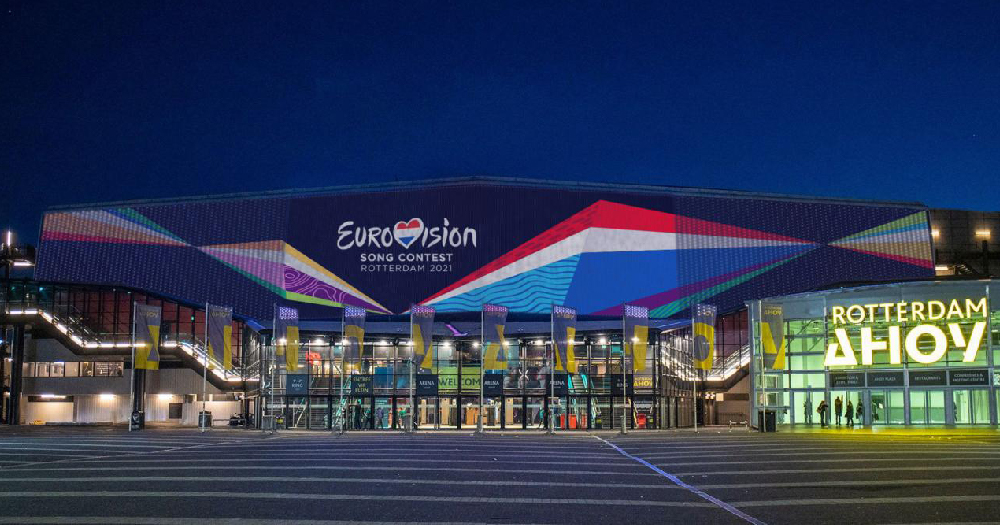The organisers of the Eurovision Song Contest have outlined three big plans for social distancing measures to ensure the beloved competition safely goes ahead in 2021.
Organisers have stated that the Eurovision Song Contest will “definitely take place” across May 18, 20 and 22, 2021, in Rotterdam. Ensuring the safety of audience members and contestants, they “have agreed upon a determined, yet realistic approach in the final phase of preparations.”
Executive Supervisor of the Eurovision Song Contest, Martin Österdahl, stated, “The Eurovision Song Contest will definitely make its welcome return this May despite the pandemic but, in the prevailing circumstances, it is regrettably impossible to hold the event in the way we are used to.”
“We very much hope to be able to gather in Rotterdam in May and will do all we can in the coming weeks to achieve this. With an ever-changing situation we are taking our time to ensure that we can host the Eurovision Song Contest in the best and safest way possible,” Österdahl continued.
In order to commence with the Eurovision Song Contest as safely as possible, organisers have outlined three key scenarios that they will be following. These plans were announced after consultation with the European Broadcasting Union (EBU), the Dutch host broadcasters and the City of Rotterdam.
Organisers wrote in a press statement, “We can now confirm that one scenario has been ruled out for the competition leaving three potential scenarios still in play for the Eurovision Song Contest 2021.”
The @EBU_HQ, @PubliekeOmroep, @NOS, @AVROTROS & @rotterdam have agreed a determined, yet realistic approach to #ESC2021.#Eurovision will definitely make its welcome return in May!
Read more about our planning ? https://t.co/gV69sxSF2J pic.twitter.com/93pNkY0IVJ
— Eurovision Song Contest (@Eurovision) February 3, 2021
The organisers describe Scenario B as follows:
- Everyone attending the Eurovision Song Contest at Rotterdam’s Ahoy Arena would need to practice social distancing.
- Strict health and safety measures (including frequent COVID testing) would be in place at the venue. A protocol to protect artists, delegations, and crew on and off site would be adhered to.
- If there are any delegations who cannot travel to Rotterdam, their artists will perform “live-on-tape” with a recorded performance being used.
- Those who can travel to Rotterdam will perform their songs live on stage.
- There would be 9 shows (6 dress rehearsals, 2 Semi-Finals and a Grand Final), either with no audience or a reduced audience to allow for social distancing. The final capacity would be dependent on local government guidelines.
- There will be activities in the city of Rotterdam held in a safe and responsible way.
However, if scenario B can no longer be seen as viable, organisers will switch to C, a travel restricted Eurovision Song Contest. This means no delegations or artists can travel to Rotterdam and all participants are going to perform ‘live-on-tape.’
In case these two options fall through, scenario D presents a lockdown Eurovision Song Contest. This will involve virtual activities to explore the host city of Rotterdam, no audience, and all performances shown ‘live-on-tape’.
© 2021 GCN (Gay Community News). All rights reserved.
Support GCN
GCN is a free, vital resource for Ireland’s LGBTQ+ community since 1988.
GCN is a trading name of National LGBT Federation CLG, a registered charity - Charity Number: 20034580.
GCN relies on the generous support of the community and allies to sustain the crucial work that we do. Producing GCN is costly, and, in an industry which has been hugely impacted by rising costs, we need your support to help sustain and grow this vital resource.
Supporting GCN for as little as €1.99 per month will help us continue our work as Ireland’s free, independent LGBTQ+ media.
